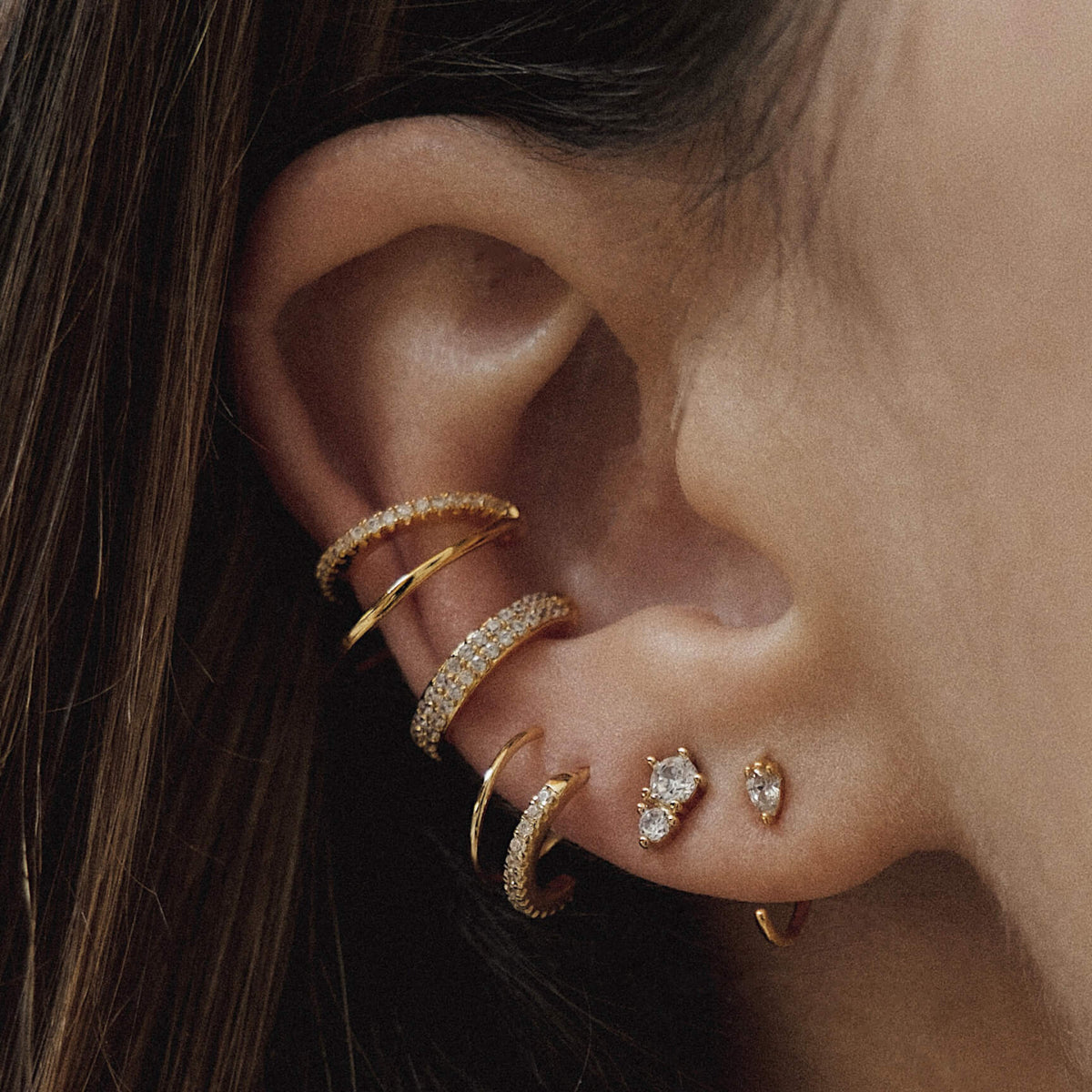Ear piercing is a widely practiced cosmetic procedure, but its success and safety depend significantly on the level of hygiene maintained throughout the process. In Dubai, where hygiene standards are critical due to the city’s health regulations and diverse population, ensuring cleanliness in Ear Piercing in Dubai. This article explores the importance of hygiene in ear piercing services and offers guidance on maintaining high standards to ensure safety and client satisfaction.
1. The Critical Role of Hygiene in Ear Piercing
Preventing Infections
Hygiene is crucial in preventing infections, which are among the most common complications associated with ear piercing. An infection can occur if bacteria or other pathogens come into contact with the piercing site. Proper hygiene practices significantly reduce the risk of infections and other complications.
Ensuring Safe Practices
Maintaining cleanliness helps ensure that all equipment and procedures are safe. A clean environment and sterile tools prevent cross-contamination and ensure that the piercing is performed under the best possible conditions.
Enhancing Client Confidence
High standards of hygiene build trust with clients. When clients see that a piercing studio adheres to strict cleanliness protocols, they are more likely to feel confident in the safety and quality of the service provided.
2. Hygiene Standards for Piercing Studios
Sterilization of Equipment
Sterilization is a cornerstone of hygiene in ear piercing. Equipment such as needles, forceps, and jewelry should be sterilized using an autoclave, a device that uses high-pressure steam to eliminate microorganisms. Regular maintenance and testing of the autoclave are essential to ensure its effectiveness.
Use of Disposable Supplies
Disposable supplies, including gloves, needles, and cleaning swabs, should be used for each client. Disposable items prevent cross-contamination and reduce the risk of infection. Reusable items must be thoroughly cleaned and sterilized before each use.
Clean Environment
The piercing studio itself should be clean and well-maintained. This includes regularly disinfecting surfaces, such as countertops and chairs, and ensuring that the floor and other areas are free from dust and debris. A clean environment contributes to a safer and more pleasant experience for clients.
3. Hygiene Practices for Piercers
Personal Hygiene
Piercers must adhere to strict personal hygiene practices. This includes washing hands thoroughly with soap and water before and after each piercing, wearing clean, disposable gloves, and avoiding touching the piercing site or equipment with unclean hands.
Proper Attire
Piercers should wear clean uniforms or clothing and keep long hair tied back to prevent it from coming into contact with the client or the piercing area. Clean attire and proper grooming reflect the overall hygiene standards of the studio.
Clean Work Area
The work area where the piercing is performed should be sanitized before each procedure. This involves cleaning and disinfecting all surfaces and ensuring that all tools are set up in a sterile manner. A well-organized and clean work area minimizes the risk of contamination.
4. Client Preparation and Aftercare
Pre-Piercing Preparations
Ensure that clients are aware of the importance of hygiene before their piercing appointment. Advise them to avoid touching their ears with unclean hands and to inform the piercer of any medical conditions or allergies that could affect the procedure.
Providing Aftercare Instructions
Aftercare is crucial for the healing process and preventing infections. Provide clients with clear instructions on how to clean their piercings using gentle, non-alcoholic solutions and to avoid exposing the piercing to potential irritants. Emphasize the importance of hand hygiene when touching the piercing site.
Monitoring for Complications
Encourage clients to monitor their piercings for signs of infection or complications, such as redness, swelling, or discharge. Promptly address any issues and provide guidance on seeking medical advice if necessary.
5. Compliance with Local Regulations
Adhering to Health Guidelines
Dubai has specific health regulations and guidelines related to body piercings. Ensure that your piercing studio complies with these regulations, which may include obtaining necessary licenses and certifications. Compliance with local health guidelines ensures that your studio meets or exceeds industry standards for hygiene and safety.
Regular Inspections
Regular inspections by health authorities or internal audits help maintain high hygiene standards. Conducting these inspections ensures that all practices, equipment, and facilities are in line with the latest health and safety regulations.
Staff Training
Regularly train staff on hygiene protocols and best practices. Ongoing education helps ensure that all team members are updated on the latest standards and procedures, contributing to a consistently safe and clean environment.
6. Addressing Common Hygiene Issues
Infections
Infections are a common concern in ear piercing. To prevent infections, adhere to strict hygiene practices, including proper sterilization and disinfection. If an infection occurs, address it promptly and advise clients on seeking appropriate medical treatment.
Allergic Reactions
Allergic reactions to jewelry can cause irritation and discomfort. Use hypoallergenic materials for jewelry and provide clients with information on recognizing and addressing allergic reactions. Switching to safer materials can help prevent further issues.
Keloids and Scarring
Some individuals may be prone to developing keloids or excessive scarring. Provide clients with information on potential scarring and offer advice on minimizing these risks. If significant scarring occurs, recommend consulting with a dermatologist or healthcare professional.
Conclusion
Hygiene plays a critical role in ensuring the safety and success of ear piercing services in Dubai. By maintaining high standards of cleanliness, from sterilizing equipment to providing clear aftercare instructions, you can prevent infections, enhance client confidence, and ensure a positive piercing experience. Adhering to local health regulations and investing in staff training further supports a safe and hygienic environment. Prioritizing hygiene not only protects clients but also upholds the reputation and professionalism of your piercing services. With careful attention to cleanliness, you can provide exceptional service and contribute to the overall health and satisfaction of your clients.





Comments